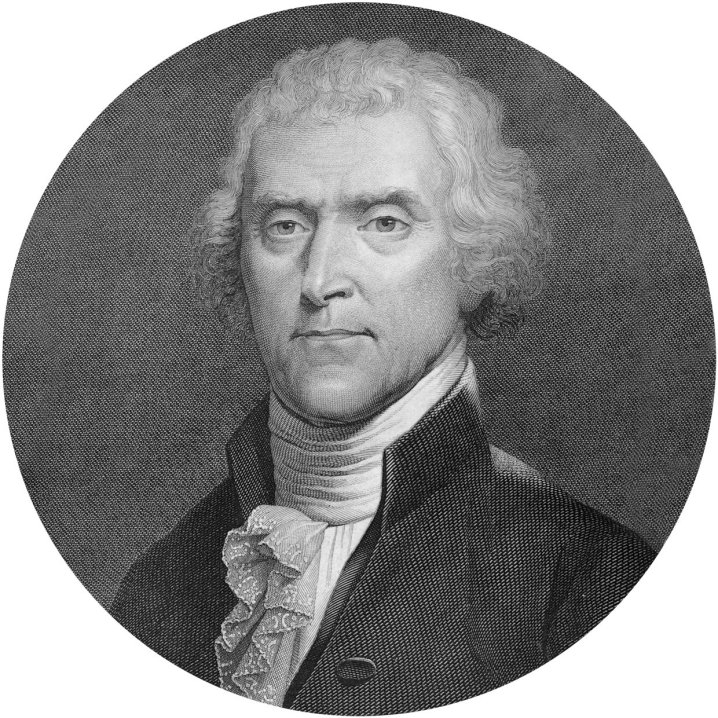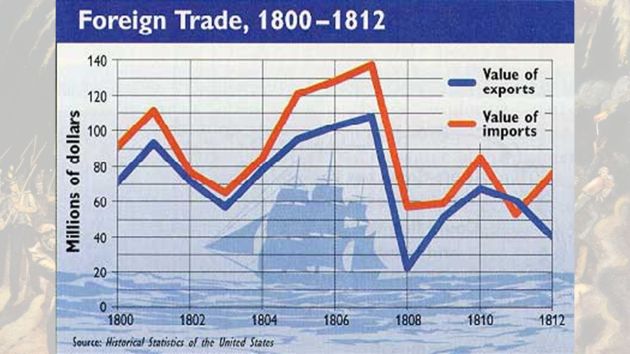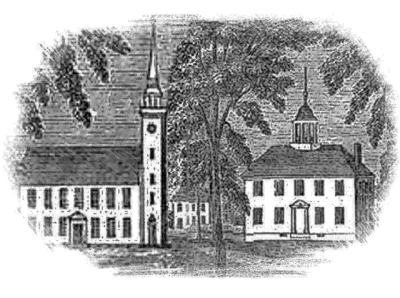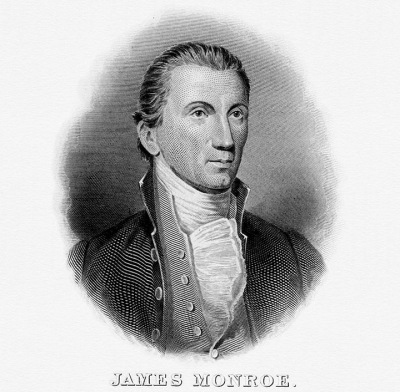The Embargo Act of 1807, sponsored by President Thomas Jefferson was imposed in response to violations of U.S. neutrality by the French and English during the Napoleonic Wars and made any and all exports from the United States illegal. By 1808, New England ports were at a standstill, and its cities and towns were heading into a depression.
The people of Ipswich were united in their opposition to the Embargo. A series of actions were recorded in the History of Ipswich, Essex, and Hamilton by Joseph Felt, as follows:
August 18, 1808: Ipswich Town Meeting petitioned President Jefferson
Resolved:
- The inhabitants of this town have at all times, from its earliest settlement, manifested a respectful regard to the laws of the country, and practiced and inculcated obedience to the constituted authorities;
- That, under the greatest pressure of calamities which the public good has been thought to require, they have remained peaceful and submissive, and that no regulation of government, however burdensome, has ever on this account been violated or evaded by any inhabitants of this town;
- That the laws of the United States, laying an embargo on all ships and vessels in the country, have operated in a very grievous manner on all classes of our citizens;
- That farmers, mechanics, fishermen, and manufacturers have, in their turns, experienced and still experience their ill effects; and we cannot contemplate their further continuance without most disquieting apprehensions;
- Nor will we believe, that the regular expression of the wishes of a free people can be offensive to enlightened and patriotic rulers.
- Therefore, your petitioners beg leave to suggest, whether the great events which have lately taken place in Europe will not afford your Excellency an opportunity for relieving the people of this once prosperous country from their present embarrassed and distressed condition.
Sep. 2nd, 1808: Thomas Jefferson’s reply
“To the inhabitants of the town of Ipswich legally assembled in town meeting:
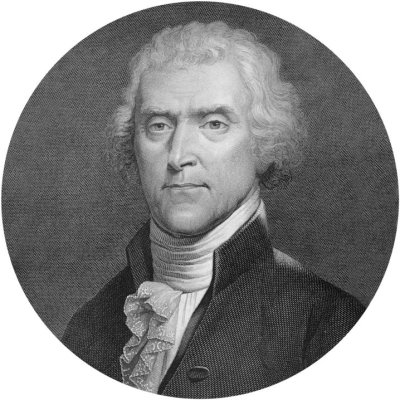
Your representation and request was received in the 1st instant and have been considered with the attention due to every expression of the sentiments and feelings of so respectable a body of my fellow citizens. No person has seen with more concern than myself, the inconveniences brought on in our country in general, by the circumstances of the times in which we happen to live, times to which the history of nations presents no parallel. For years we have been looking as spectators on our brethren of Europe afflicted by all those evils which necessarily follow an abandonment of the moral rules which bind men and nations together. Connected with them in friendship and commerce, we have happily so far kept aloof from their calamitous conflicts by a steady observance of justice towards all, by much forbearance and multiplied sacrifice.
At length, however, all regard to the rights of others having been thrown aside, the belligerent Powers have beset the highway of commercial intercourse with edicts which, taken together, expose our commerce and Mariners under almost every destination, a prey to their fleets and armies. Each party indeed would admit our commerce with themselves, with the view of associating us in their war against the other, but we have wished war with neither.
Under these circumstances were passed the laws of which you complain, by those delegated to exercise the powers of Legislation for you, with every sympathy of a common interest in exercising them fatefully. In reviewing these measures, therefore we should avert to difficulties out of which a choice was of necessity to be made. To have submitted our rightful commerce to prohibitions and tributary exactions from others would have been to surrender our independence. To resist them by arms was war, without consulting the state of things or the choice of the nation. The alternative preferred by the legislature of suspending a commerce placed under such unexampled difficulties, besides saving to our own citizens their property, and our mariners to their country, has the peculiar advantage of giving time to the belligerent nations to revise a conduct as contrary to their interests as it is now to our rights.
In the event of such peace or suspension of hostilities between the belligerent powers of Europe, or of such change in their measures as afflicting neutral commerce as may under that of the U.S. sufficiently safe in the judgment of the President he is authorized to suspend the embargo. But no peace or suspension of the hostilities, no change of measures afflicting neutral commerce is known to have taken place. The orders of England, and the Decrees of France and Spain, existing at the date of these laws, are still unrepealed, as far as we know. In Spain indeed, a contest for the government appears to have arisen; but of its course or prospects we have no information on which prudence would undertake a hasty change in our policy, even were the Authority of the Executive competent to such a decision.
You desire that, in this defect of power, Congress may specially be convened. It is unnecessary to examine the evidence or the character of the facts which are supposed to dictate such a call; because you will be sensible, on an attention to dates, that the legal period of their meeting is as early as, in this extensive country, they could be convened by a special call.
I would, with great willingness, have executed the wishes of the inhabitants of the town of Ipswich, had peace or a repeal of the obnoxious edicts, or other changes, produced the case in which alone the laws have given me that authority: and so many motives of justice and interest lead to such changes that we ought continually to expect them. But while these edicts remain, the legislature alone can prescribe the course to be pursued.”
Thomas Jefferson, Sep. 2, 1808
Nov. 7th, 1808: A majority voted that the President’s answer was not satisfactory.
November, 1908: James Madison, a Federalist, was elected President of the United States.
Feb. 6th, 1809: Resolves were passed, disapproving the embargo and the course of Congress, in strong terms, and giving a pledge to stand by the General Court. The political parties here stood thus; 346 against the national administration, and 173 for it. Throughout the country, the animosity between such parties was, and continued for several years, exceedingly and perilously bitter.
The Non-Intercourse Law
In November 1808, James Madison was elected President of the United States. In March 1809, Jefferson signed the repeal of the failed Embargo just before leaving office. In its place was substituted a Non-Intercourse Act, which still prohibited commerce with France and Great Britain, but permitted it with neutral nations.
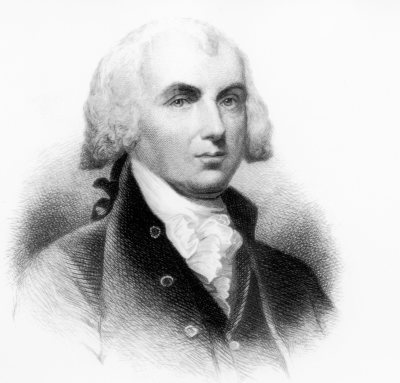
By 1809, at least a tenth of Ipswich residents were living on charity. Immediately upon the lifting of the embargo, trade revived and fleets began sailing again. Along the Ipswich waterfront, merchants and sailors were busy loading and preparing their craft.
March 4, 1809, The Non-Intercource Law went into effect, the day of Madison’s inauguration. Trade instantly revived. From every port, the great merchant fleets sailed forth. Along the Ipswich waterfront, on wharves, in warehouses, aboard the long idle vessels, merchants, laborers, sailors were eagerly active in hurrying away their craft to reap their share of the advantages of trade with the long-closed ports.
War of 1812: the misery continues
Hopes were dashed when American seamen “in the thousands” were taken by British men-of-war and forced into the English Navy. War was demanded by the public outside of New England, and on the 17th of June, 1812, war was declared.
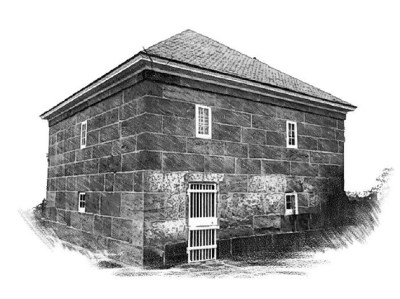
The War of 1812 restored the embargo, the wharves fell into ruin, and Ipswich continued its steady decline. The population of Ipswich in 1788 was estimated to be 4500 people, which dropped to 3,369 in the 1810 census and to only 2,653 residents a decade later. For several decades the reputation of Ipswich was that it had “gone to seed.”
On October 7, 1813, the keeper of the Ipswich jail was instructed by the District Marshal (who had received orders from the President) “to receive into his custody and safely keep in dungeons, in the gaol aforesaid,” 16 British prisoners of war as hostages in retaliation to the capturing of 16 Americans by the British. The Ipswich jail was built without a source of heat. It was later learned that the Americans had been kept in “comfortable apartments” in Halifax.
The Ipswich Town Meeting was convened on Feb. 9, 1814, and a strong statement against the War was sent to the legislature, with only 5 persons dissenting. It read in part,
“To the hand which causelessly inflicts the evils we suffer, we are not disposed to look for relief; to those marble hearts, which instead of sympathizing, rejoice in our sufferings, we disdain to appeal…But who at last believes that free Trade and Seaman’s rights ever were the true object of the War? Who is not convinced that enlarging the power of the authors and aiding the common enemy of free States was its prime object? And shall this once happy abode of Freedom, Honored purposes, and without any possible benefit to herself? —Signed on behalf of the Town, the Selectmen of Ipswich.
The War ends
The Treaty of Peace was signed on Dec. 26, 1814, but it was not until Feb. 13, 1815, that the news reached Salem. A messenger galloped from Salem through Ipswich shouting “Peace, Peace,” and scattering a broad-side by the way. All the bells were rung and the meeting house of the First Church was illuminated in the evening.
Ipswich had good reason to be glad. Her sailors were languishing in Dartmoor Prison. Prices had risen to an almost prohibitive degree. The war had cost the American people the lives of thirty thousand men, as many more were incapacitated from leading happy, vigorous lives, and a sum of $200,000,000.
Thomas Franklin Waters wrote, “The depression incident to the War soon disappeared with the return of commerce and the resumption of the ordinary routine of business. The Fourth of July was celebrated with new zest, now that the War had revealed the strong and sure foundation of the national life.”
President Monroe’s visit to Ipswich
In April 1811, Madison appointed James Monroe as Secretary of State. When the British burned the U.S. Capitol and the White House on August 24, 1814, Madison appointed Monroe Secretary of War. He continued to hold both posts.
Following his inauguration as President in March 1817, Monroe decided to tour New England, as President Washington had several decades before. In much of the area, he was received with great enthusiasm, but the attitude of Ipswich was decidedly chilly. The warrant for a Town Meeting held on June 23 contained the following Article:
“To see what measures the Town will adopt on the intended visit of the President of the United States and to express their respect for him ….”
The meeting voted to dismiss the article. Nevertheless, on his arrival in Ipswich on Saturday, July 13, he was received by a procession, waving flags, and stirring martial music. After breakfasting at Treadwell’s Inn the President departed for Newburyport, escorted by a regiment of cavalry under Col. Colman and followed by a numerous cavalcade of officers and citizens, who had come from Newburyport and the vicinity to meet him.
From the journal of Miss Eunice Jones, 1793-1825
Journal, July 12, 1817:
“This morning about nine o’clock the President of the United States, Monroe, passed through Ipswich. He was attended by a large concourse of people; they paid him all the honor possible. The gentlemen and ladies of the town decorated our street and bridge beautifully with trees and flowers. An arbor of pine trees was erected at the entrance of the bridge; over the bridge was an arch of woodwork completely covered with wreaths and flowers. The ladies were engaged for two weeks in preparing these wreaths.
“As the president approached and passed over the bridge, a band concealed from sight in the arbor played upon their instruments melodiously. The children of the town were dressed in uniform and stood on each side of the green at Dr. Dana’s meetinghouse. All ranks and ages followed him as he passed along. An elegant horse was offered for his use in town by Mr. C. and Mr. B. The training companies paraded and escorted him to the Hotel where he took breakfast and then stepped into his carriage and left town.”
Sources:
- Ipswich in the Massachusetts Bay Colony Vol. II by Thomas Franklin Waters
- History of Ipswich, Essex, and Hamilton by Joseph Felt

